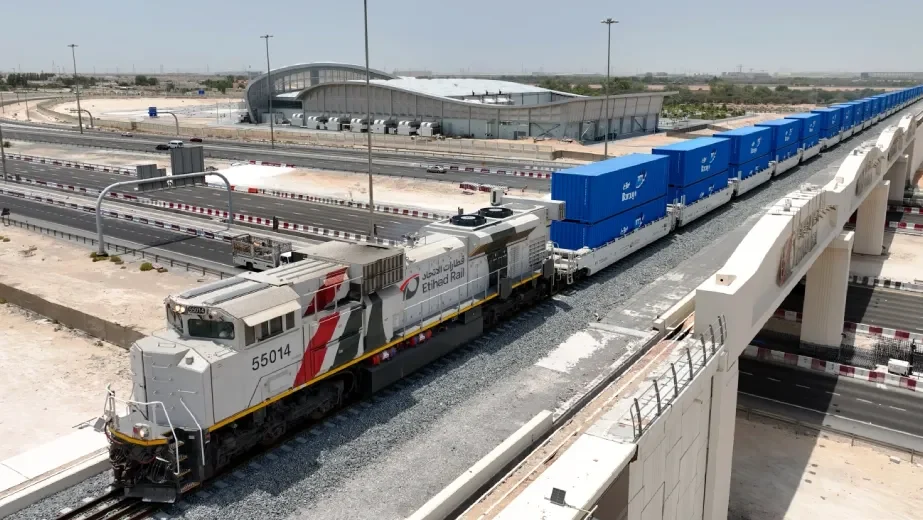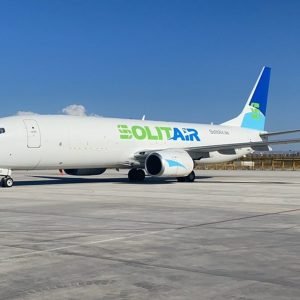Etihad Rail, the UAE’s national railway network, has signed a multi-billion-dirham deal with the Abu Dhabi National Oil Company (ADNOC). The agreement will see huge volumes of petrochemical products transported by rail instead of trucks. This move is expected to significantly cut down road congestion, reduce carbon emissions, and boost the country’s sustainability goals.
This partnership is not only one of the biggest freight agreements in the country’s history but also a major win for the environment.
Why This Deal Matters
Currently, thousands of trucks move across UAE highways every day to transport goods, including chemicals and oil products. While this system has worked for decades, it has come with a heavy cost—traffic congestion, road wear and tear, and environmental pollution.

With the new railway deal, Etihad Rail can carry the same volume of goods in fewer trips, more safely, and with far less impact on the environment.
The freight network is expected to reduce carbon emissions by over 21% per trip compared to traditional trucking. It also means fewer trucks on the roads, leading to smoother travel for commuters and less pressure on road infrastructure.

A Greener, Safer Future for Freight

The Etihad Rail-ADNOC partnership reflects the UAE’s long-term vision for sustainability and smart logistics. As part of the UAE Net Zero by 2050 strategy, the country is pushing for innovative ways to lower emissions without slowing down economic growth.
Moving petrochemicals by train is not just cleaner, it’s also safer. Trains are less prone to accidents compared to road transport, especially when it comes to carrying flammable or hazardous materials. This makes the new plan a win for public safety, the environment, and the logistics industry.
What Will the Rail Network Do?
The rail system will connect ADNOC’s production hub in Ruwais—home to one of the world’s largest refining and petrochemical complexes—with key trade zones and ports across the UAE. These include locations in Abu Dhabi, Dubai, Sharjah, and the northern emirates.
It’s also important to note that the entire freight network is being built to meet world-class safety and technology standards, including smart systems that monitor train operations in real time.
A Boost to the Economy and Job Market
This deal will have a ripple effect beyond just rail and oil.
For one, it will support the growth of the logistics sector, creating new jobs and encouraging local investment. It will also help ADNOC streamline its operations, making deliveries faster and more cost-effective.
Additionally, businesses that rely on petrochemicals—like plastics, manufacturing, and construction—will benefit from more reliable and timely supplies. That means stronger supply chains and more stability for industries across the UAE.

A National Vision in Motion
Etihad Rail has been expanding rapidly in recent years, building a nationwide network that will eventually stretch over 900 kilometers.
This collaboration with ADNOC marks one of the largest and most strategic commercial partnerships in Etihad Rail’s history. It shows how the company is moving from just laying tracks to becoming a central player in the UAE’s transportation and environmental future.
ADNOC’s involvement is also a strong signal that major industries are now fully on board with the UAE’s clean energy goals.
Voices from the Leaders
Both companies hailed the deal as a milestone.
The CEO of Etihad Rail described the agreement as a “turning point” in how freight is managed in the UAE, adding that the network will “set a new benchmark for green logistics in the region.”
Meanwhile, ADNOC leadership emphasized their commitment to sustainability and innovation, stating that rail transport aligns perfectly with their future-focused strategy.
By joining forces, both companies aim to achieve greater efficiency while contributing to the country’s national development goals.
The Road Ahead: What to Expect
With construction on the main Etihad Rail lines now in advanced stages, the actual transport of ADNOC’s products is expected to begin as soon as the infrastructure is ready. Experts believe this could happen in the next year or two.
Once operational, the system will reshape how goods move across the UAE—quietly, quickly, and cleanly.
This is just one of many upcoming projects as the UAE continues to diversify its economy, modernize infrastructure, and build a greener future.
Final Thoughts
The Etihad Rail-ADNOC partnership is more than just a business deal—it’s a powerful symbol of progress.
It shows how bold decisions, smart planning, and collaboration between industries can lead to real change. Less traffic. Cleaner air. Stronger logistics. And a better tomorrow for everyone in the UAE.
Also read: Thick Fog Causes Chaos on UAE Roads and Airports Today














